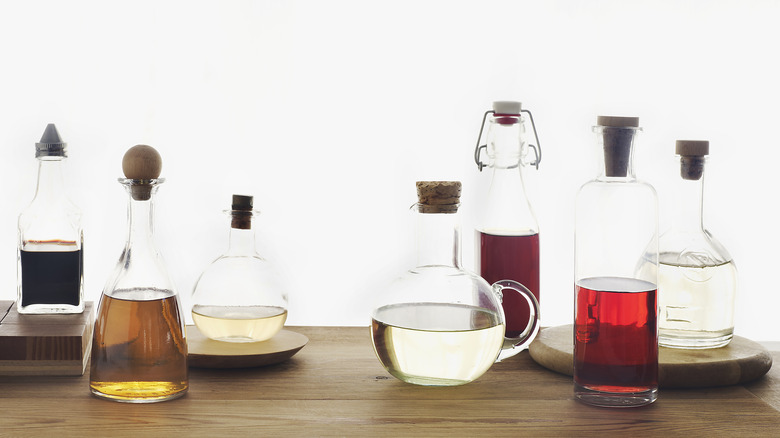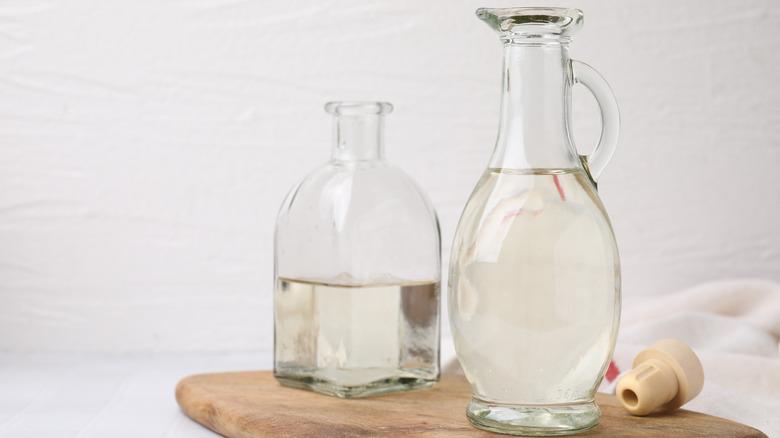Does It Matter What Type Of Vinegar You Use For Homemade Hot Sauce?
What is your hot sauce of choice? Common (budget-friendly) brands like Valentina, Tabasco, Tapatio, Cholula, and Sriracha no doubt all have die-hard fans who swear their favorite sauce is the best. Of course, if you want to go beyond basic, there is a world of hot sauces available to you — many of which can be found at Heatonist, which carefully filters out hot sauce powerhouses from those that pale in comparison, allowing heat-loving connoisseurs to discover ever-more-complex and palatable options.
But once you've experienced the best hot sauces out there, maybe you're feeling inspired to make your own. Good news: Making hot sauce at home is easier than you may think, and can be done with only a handful of ingredients. At its simplest, you need peppers, flavorings like garlic and onion, and vinegar. Now, here's where it gets interesting. There are a number of peppers you can choose from, and they can be combined in a variety of ways. And the same can be said of vinegar. So, which vinegar is the best?
Noah Chaimberg, founder and CEO of Heatonist, weighed in on this question when speaking to Chowhound. "The best type of vinegar for homemade hot sauce is one you enjoy!" he says. "We've tasted delicious sauces made with everything from apple cider vinegar to white balsamic and even infused vinegar." If you really want to go 100% homemade, you can even make your own apple vinegar.
White vinegar is a very good place to start
While Noah Chaimberg's permission to use any vinegar you like may sound liberating, it could also be intimidating to a newer cook who just wants some precise direction. If that's you, feel free to start with a simple white vinegar. As Chaimberg says, "Even the humble distilled white vinegar can have its place in a great recipe." And indeed, many hot sauce recipes call for white vinegar because it has a more neutral flavor, meaning it won't overwhelm with your other flavors.
But once you're ready to "graduate" from distilled white vinegar, you may want to explore your options. Other common vinegars include apple cider vinegar, red and white wine vinegar, rice vinegar, and balsamic vinegar. Of these, balsamic is the most difficult to incorporate seamlessly into your sauce, as it can have the strongest flavor. It is also not as easy to substitute with other vinegars, due to its more intense flavor and thicker texture. (If you do go with balsamic vinegar, however, check out these tips to avoid buying a subpar bottle.)
Do some research into the key flavor notes and strengths of different vinegars. For example, apple cider vinegar, because it's made with fruit, can be a good choice if you're making a fruity, sweeter hot sauce. And rice vinegar, because it is milder than most vinegars, might be a good choice if you want to highlight some other flavors in your hot sauce.

